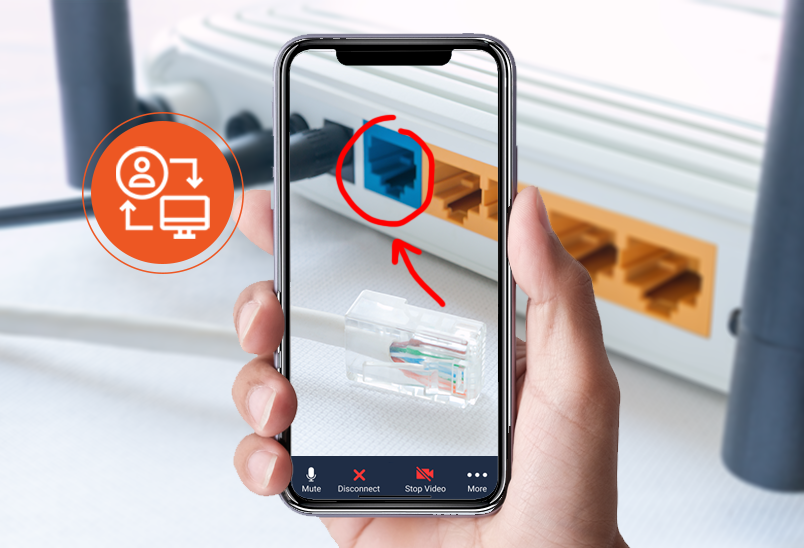There are several issues impacting businesses in 2021 such as Covid19, high energy costs, climate change, reducing one’s carbon footprint and shortages of people to fill job vacancies. All of these issues are serious ones and organisations that do not address them quickly will likely struggle to remain competitive over the next few years. Innovation is critical to addressing these issues but solutions must be cost-effective, flexible and easy to implement. One such solution is RVA, which is a cloud service and can be implemented within hours and it requires very minimal training. RVA solves some of the most detrimental problems for businesses as follows;
Covid19
RVA eliminates the need for a site visit by easily setting an AR-enhanced video session between the two (or multiple) parties. Using AR features such as annotation, optical character recognition (OCR), image and video capture the remote party can be guided to complete a task safely or they can remotely assist an Inspector or Surveyor. The lack of close human contact will reduce the risk of Covid19 transmission.
High energy costs & reduce carbon footprint
Reducing or eliminating travelling will obviously reduce energy costs whether the vehicle is diesel/petrol or electric-powered. In some situations, the travelling costs include a plane flight and hotel stay, in these situations the organisation has the most to gain from RVA. Clearly reducing the number of fossil fuels such as petrol and diesel will also reduce the carbon footprint.
Shortage of people for job vacancies
The UK’s employers are struggling with the greatest staff shortages since 1997, due mainly to a sudden drop in overseas workers due to Covid and Brexit according to accountancy firm KPMG. Many recruitment agencies are reporting problems with hiring across several sectors, led by shortfalls in transport and logistics, IT, hospitality, manufacturing and construction.
There are several ways in which RVA can help with this problem. Instead of employing a large highly mobile skilled workforce in the field, several organisations have changed so that a smaller group of skilled staff remain based in the office or at home and provide their services digitally through RVA. Without having to waste time travelling they become more productive and there is less pressure to recruit. Unskilled on-site personnel are able to assist whether they are internal staff or 3rd party by simply holding a smartphone and moving around into the relevant locations. Whilst this may not suit all types of industry there are some that it does very well such as quality inspections and auditing, facilities management, product support, heating and plumbing services, Housing Associations and field maintenance.
Complimentary automation features such as the production of inspection/survey reports, tagging and categorising content, detection and alerting of problems and anomalies, operator checklists compliance scanning also help to reduce admin and time.



